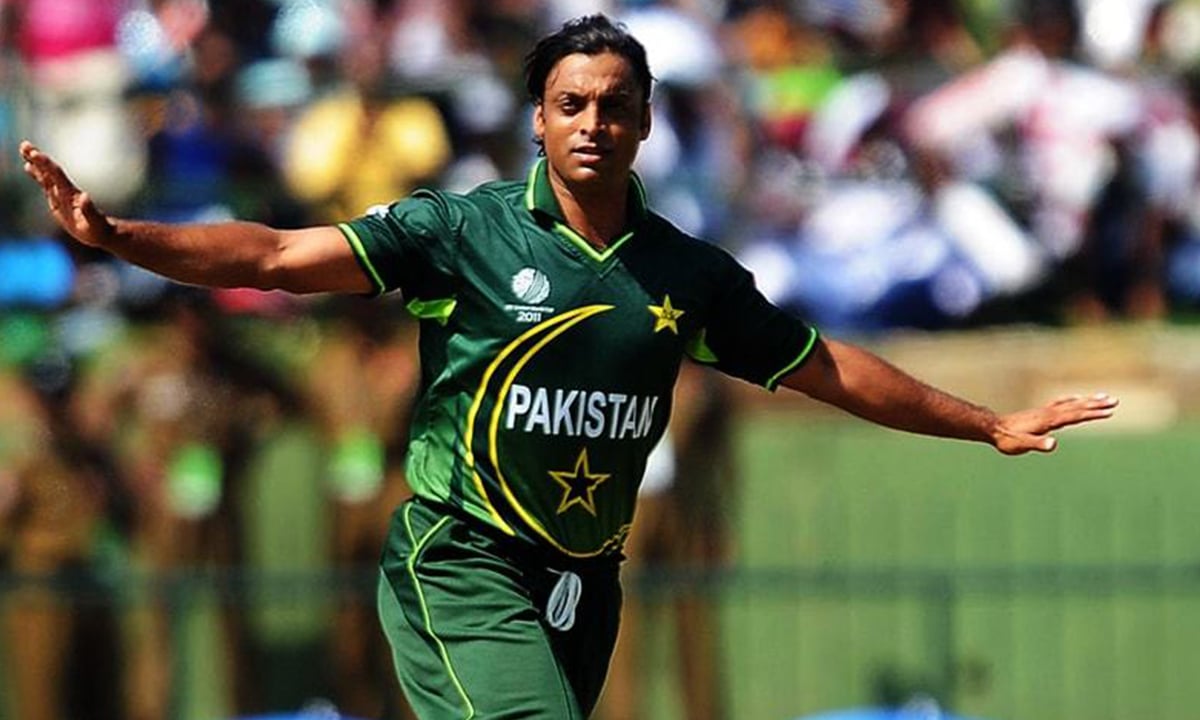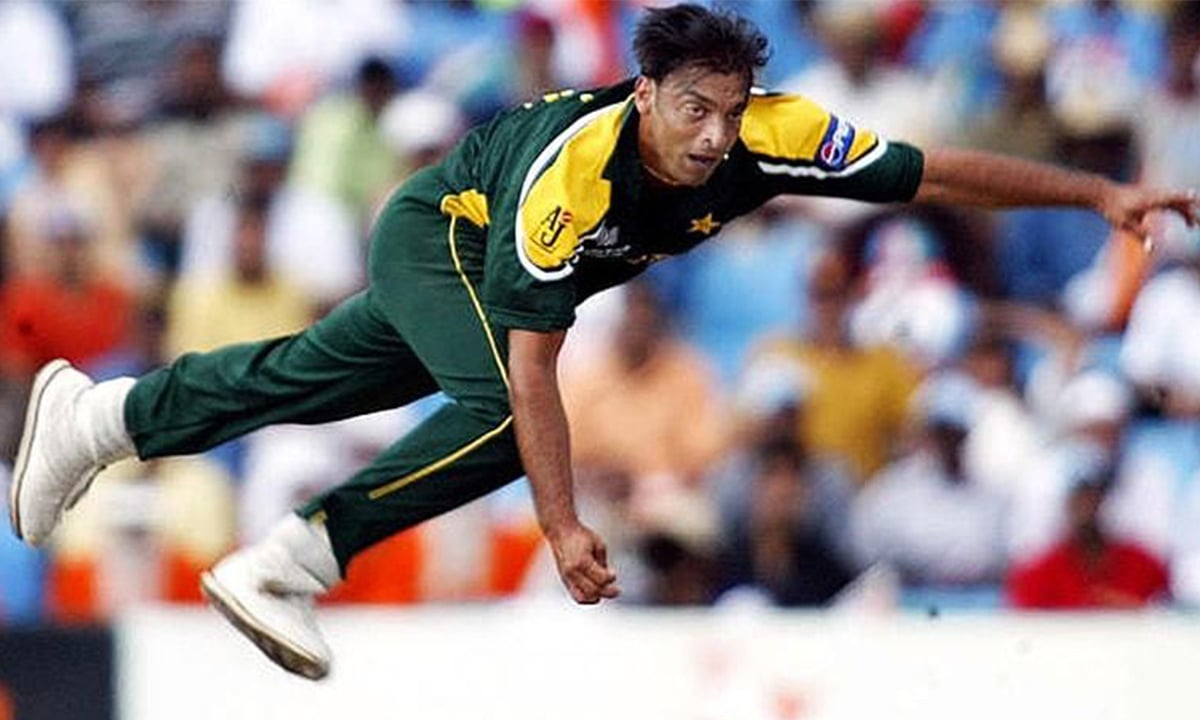I don't need a coach to tell me how to bowl: Shoaib Akhtar

From the dusty lanes of Rawalpindi to the hallowed turf at Lord’s, Shoaib Akhtar has done it all. At one moment, the demonic fast bowler is making Brian Lara and Ricky Ponting duck for cover with his 100 miles per hour thunderbolts. The next, he is rubbing shoulders with Bollywood celebrities in Sun City, South Africa. On tours, he coolly rides a swanky bike for high-profile sponsors while his colleagues sweat it out in a dilapidated team bus.
He has twice been called for chucking, reprimanded by the authorities for bunking team sessions, caught sneaking out of the team hotel well past his bedtime and is loathed by former players for taking a swipe at them. But no matter how brash the game’s experts and aficionados find the Rawalpindi Express,he boasts the unique ability to come out a winner against all odds. Characteristically shrugging off rumours about his fitness and performance for Pakistan’s challenging tour of England starting June 22, Akhtar talks to the Herald about his ongoing tussle with the media, his current form and future plans.
Mahmood. How do you view your chances of touring England with the team?
Akhtar. Excellent. I am absolutely fit and raring to go at Andrew Flintoff’s men.
Mahmood. There are some doubts regarding your fitness following the knee surgery you underwent in March …
Akhtar. Those who doubt my return will soon be eating their words. I would like to clarify that my knee joint was never opened up during the surgery. The doctors in England simply washed away the broken cartilage in my legs that had stacked up around my knee and was bothering me while bowling.
The procedure is called arthroscopy and is the most modern technique of leg surgery available. The recovery process has been amazing as I was walking the very day I was operated on.Thankfully, I am bowling at full speed today. In fact, I’m a yard quicker. Besides, I am feeling much lighter and more confident about performing well in England.

Mahmood. What are Pakistan’s chances in England?
Akhtar. England is a tough side indeed, especially at home. But Pakistan is also one of the best teams in the circuit and if our pace quartet – Mohammad Sami, Rana Naved, Mohammad Asif and myself – is on fire, England will be in deep trouble. That said, individuals can never win a cricket match. It has to be a team effort and a lot depends on our batsmen too.
Mahmood. Is team spirit lacking in the Pakistan camp?
Akhtar. Not really. All the players respect Inzamamul Haq as he is doing a great job as skipper. He has united the team and that's what is required. An argument here and there is part of the game and not much should be made of it. Players, after all, are human. It is too much to ask that all the players be best friends in the dressing room or off the field. But once on the field, we should be playing as one, which I think is the case.
Mahmood. Why are you so obsessed with speed?
Akhtar. I am built for speed. I love bowling fast and I know I can sustain the act. Everyone has a role to perform in this world and God has chosen me to bowl fast. Lots of people feel I should cut down on my speed but why should I do that?
Mahmood. You seem to have a knack for courting controversy?
Akhtar. Controversy has always been synonymous with fast bowling. Freddie Spofforth in the 1880s, Dennis Lillee, Imran Khan and Wasim Akram have all had their share of rows. So what’s so different about me? What upsets me, though,is that the media has painted me as a villain, primarily for things I have not done. But the most importantthing is that my conscience is clear.
Mahmood. You have also been fined for indiscipline …
Akhtar. If you count unwinding after a hard day’s work as an act of indiscipline then perhaps I am guilty. Much is made of my on-field gestures but my reactions are purely instinctive. I never plan on doing particular thing at a particular time. Former Aussie skipper Steve Waugh correctly stated a few years ago that the cricketing laws can be suffocating for players because they are not allowed to vent their emotions.

Critics must understand that things happen in the heat of the moment and are then forgotten. On the other hand, I rode a bike in India which had been given tome by the sponsors and I was accused of being a show-off, an inadequate team man. I am also often dubbed a party animal. Please explain to me why I shouldn’t go to parties? Am I not human and don't I have a right to enjoy my evenings like all normal people? I take my game seriously but I also want to enjoy life at the same time.
Mahmood. Would you attribute your success in cricket to good coaching?
Akhtar. No. I simply do not believe in coaching. I belong to the school of thought that advocates strong captaincy as the main catalyst for success. A good captain can make good team and a poor leader will bring it down.
What can the coach do? He cannot teach me how to bowl because that is something that comes naturally. The best he can do is to motivate me and boost my confidence. But that dimension of the game can best be handled by a captain who is on the field with you all the time. Look at Imran Khan. Even without a Bob Woolmer he was the best captain Pakistan ever had because he knew how to motivate his players and get the best out of them.
Mahmood. Is there a particular player that you admire in world cricket?
Akhtar. I think Brian Lara is a fantastic batsman and have enjoyed bowling to him. Of course, Sachin Tendulkar, Inzamam and Ricky Ponting along with a few others are also outstanding. Bowling Tendulkar on the first ball for a duck in Calcutta remains one of the high points of my career.
Mahmood. What’s your opinion about the growing influence of religion in the Pakistan dressing room?
Akhtar. It is true that more players are into religion these days. But that is their free will and I have no problems with it. I am my own man and I don’t like having anything imposed on me. As long as the other players give me my space, I am happy. Some of my teammates wanted me to sport a beard, which I flatly refused to do.
Ultimately, I know that I am answerable to God and not to any human. As for praying, I realise that it is an essential ritual for every Muslim and I do offer my prayers whenever possible. I will also take this opportunity to appreciate what General Pervez Musharraf said to the team when we asked him to join us for Friday prayers earlier this year. Although he accepted our request, he advised the boys to widen their sphere of thought and keep extremists at bay.

Mahmood. Do you feel cricket is run properly in the country?
Akhtar. I would say that the Pakistan Cricket Board is doing a fair, if not perfect job. But I do feel that Pakistan should assert itself more with regards to matters that are left entirely up to the International Cricket Council. Look at what happened to Shabbir Ahmed who was banned from international cricket for his flawed bowling action. I doubt a similar verdict would have been handed out to an English or Australian cricketer, given that Shane Warne and Brett Lee have got away with a lot worse.
Mahmood. How do you view the future of Pakistani cricket?
Akhtar. It is not too rosy, I’m afraid. Contrary to the popular belief that we are rich in talent, it is actually drying up. The game continues to have tremendous appeal and there is healthy backing from the sponsors but the abundance of talent that I witnessed 15 years ago no longer exists. I blame it on the system and the lack of financial security at the first-class level.
I do not see any genuine fast bowlers or prolific batsmen emerging from within our ranks 10 years from now. In fact, I wouldn’t be surprised if cricket meets with the same fate in Pakistan that squash did. I hope I am wrong but there are too many visible signs to ignore.
Mahmood. How are things shaping up for you on the personal front?
Akhtar. Pretty well. I am fit and focused and intend to play for another six or seven years before retiring at my peak. I recently moved to Lahore because that is where the cricket headquarters and the National Cricket Academy are based. This year is also significant for me because I will be getting married in November.
This was originally published in the Herald's June 2006 issue. To read more subscribe to the Herald in print.










